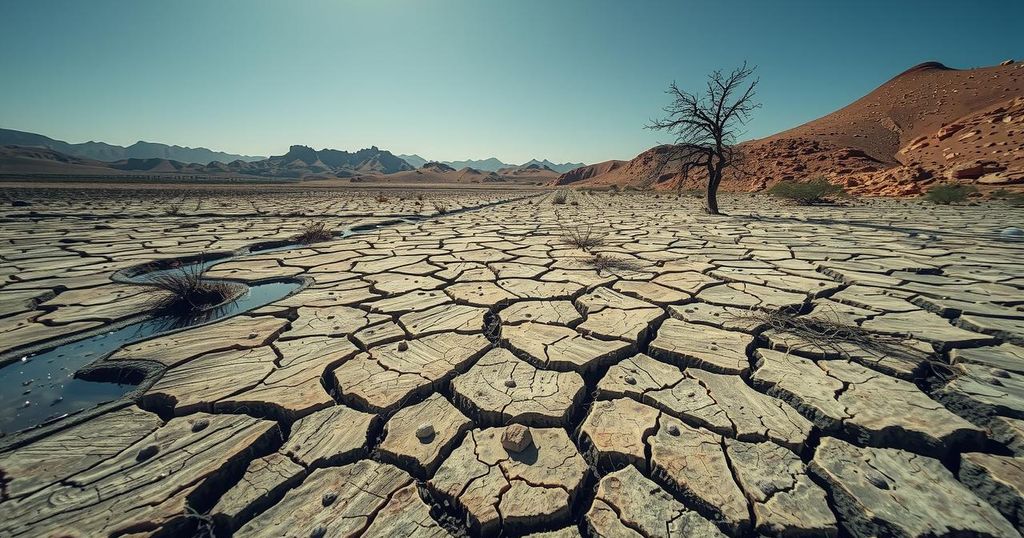South Africa is currently grappling with severe water shortages, particularly affecting Johannesburg’s townships. Residents have been facing intermittent water supply due to city-imposed restrictions aimed at addressing over-consumption. Protests erupted in response to these outages. The crisis is fueled by infrastructure inadequacies, management inefficiencies, and climate change, with warnings about impending water depletion if consumption habits do not change. Experts stress immediate action is necessary to mitigate public health risks and ensure future water availability.
In South Africa, water shortages have become an unfortunate reality, particularly for residents in Johannesburg’s townships. Joyce Lakela, a nursery operator in Tembisa, shared her plight, stating, “It’s been going on for five days,” referencing the lack of water due to escalating temperatures and reduced water supply. The situation is exacerbated by city-imposed daily water restrictions deemed necessary to combat over-consumption and carry out maintenance work. Despite the availability of sufficient water reserves nationally, many individuals are encountering severely intermittent tap water access, a condition that follows a year marked by frequent electricity shortages. Last week, discontent boiled over in the suburbs of Westbury and Westdene as residents staged protests, voicing their frustration by barricading the roads and burning tires due to ongoing water outages affecting essential services, including hospitals. The shortages are attributed to a series of mismanagement issues, including high water consumption and maintenance-related outages as stated by Rand Water, the water supplier for Gauteng. “Water storage could soon be depleted if municipalities do not implement our recommendations,” the company warned, emphasizing the critical situation. Makenosi Marooa elaborated, noting that more than 40 percent of water is lost due to leaks and illegal connections. Experts highlight that the inefficiencies in municipal water management and widespread corruption play a significant role in the crisis. While some municipalities argue that water shortages stem from inadequate supply to reservoirs, issues also trace back to the insufficient infrastructure in place to manage the demands of Gauteng’s growing population. An agreement with Lesotho to enhance water supply, originally expected to yield benefits by 2018, has faced delays and is pushed until 2028, likely prolonging intermittent water restrictions. Climate change adds a worrying dimension to the issue, potentially reducing South Africa’s precipitation by as much as 25 percent as global temperatures rise. With current annual rainfall measuring only 450mm compared to the global average of 786mm, South Africa faces an ongoing water scarcity predicament. Authorities emphasize the need for individuals to alter their water usage habits or risk facing stricter regulations. The Global Commission on the Economics of Water has highlighted the urgency of the situation, as improper management can jeopardize public health by contaminating the water supply due to unmonitored leaks during fluctuating water flow.
The water crisis in South Africa, particularly in Gauteng, reflects a complex interplay of mismanagement, over-consumption, and environmental factors exacerbated by climate change. As water reserves are being overextended amidst a rapidly growing population, municipalities struggle to maintain infrastructure and supply stability. Ongoing projects intended to enhance water supply face significant delays, further compounding an urgent need for effective management and conservation strategies.
The water crisis in South Africa underscores an urgent need for systemic changes in water management practices, heightened accountability at municipal levels, and substantial investments in infrastructure. As residents face the daily challenges of water shortages, the government and relevant authorities must prioritize sustainable practices while urging public cooperation in water conservation efforts to avert a worsening situation.
Original Source: www.seychellesnewsagency.com







